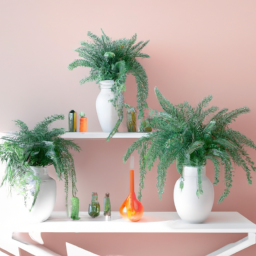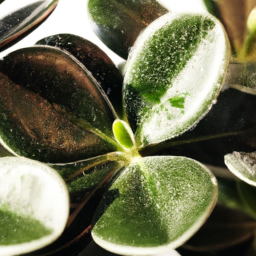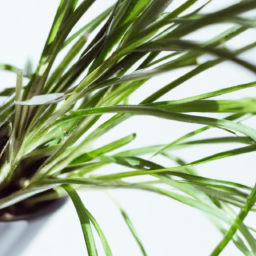
Have you ever wondered, “Are indoor plants bad for you?” It’s a common question that many people have when considering adding greenery to their living spaces. While indoor plants are known for their air-purifying properties and aesthetic appeal, some may worry about potential health risks associated with having plants indoors. In this blog post, we’ll explore the benefits and drawbacks of having indoor plants, and whether they can have any negative effects on your health. So, if you’re curious about the impact of indoor plants on your well-being, keep reading to learn more.
Potential Health Risks of Indoor Plants
Indoor plants are a popular way to bring nature into our homes and offices, but are they really as harmless as they seem? While indoor plants can provide numerous benefits, such as improving air quality and reducing stress, there are also potential health risks associated with having them indoors.
Allergies and Respiratory Issues
One of the main concerns with indoor plants is the potential for triggering allergies and respiratory issues. Some people may be allergic to certain types of plants or the pollen they produce, which can lead to symptoms such as sneezing, coughing, and itchy eyes. In addition, indoor plants can also harbor mold spores and other allergens that can exacerbate respiratory conditions like asthma.
If you or someone in your household has allergies or respiratory issues, it’s important to choose indoor plants carefully and keep them well-maintained. Opt for plants with minimal pollen production, such as ferns and palms, and regularly clean the leaves to prevent the buildup of dust and mold.
In some cases, it may be necessary to remove certain plants from your indoor space if they are causing severe allergic reactions or respiratory symptoms. Consult with a healthcare provider if you are unsure about which plants are safe for you to have indoors.
Toxicity of Indoor Plants
Another potential health risk of indoor plants is their toxicity to humans and pets. Many common indoor plants, such as philodendrons, peace lilies, and pothos, contain toxic compounds that can be harmful if ingested or touched. Symptoms of plant toxicity can range from mild skin irritation to more severe reactions like nausea, vomiting, and difficulty breathing.
To prevent accidental poisoning, it’s important to research the toxicity of any indoor plants you bring into your home and place them out of reach of children and pets. If you suspect that someone has been exposed to a toxic plant, contact a poison control center or seek medical attention immediately.
When selecting indoor plants, opt for non-toxic varieties like spider plants, African violets, and Boston ferns to minimize the risk of toxicity. Remember that even non-toxic plants can cause gastrointestinal upset if ingested in large quantities, so it’s best to err on the side of caution.
Maintaining Indoor Plant Health
In addition to potential health risks, indoor plants require proper care and maintenance to thrive and remain healthy. Neglecting your plants can lead to issues like overwatering, pest infestations, and mold growth, which can negatively impact indoor air quality and your overall well-being.
To ensure the health of your indoor plants, make sure to water them appropriately, provide adequate sunlight, and regularly inspect them for signs of pests or disease. Avoid over-fertilizing your plants, as this can lead to nutrient imbalances and other health problems.
By taking good care of your indoor plants and being mindful of potential health risks, you can enjoy the many benefits they provide without compromising your well-being. Remember to research any new plants before bringing them into your home and seek professional advice if you have concerns about their safety.
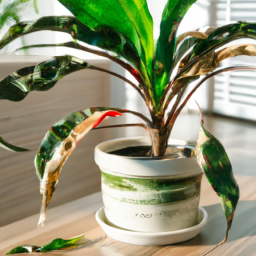
Common Indoor Plants That Can Cause Allergies
Introduction
When it comes to indoor plants, many people believe that they are beneficial for air quality and overall well-being. However, not all indoor plants are created equal, and some can actually cause allergies in certain individuals. In this article, we will explore some common indoor plants that can trigger allergic reactions and how to mitigate the risks.
Potential Allergens in Indoor Plants
Indoor plants can release pollen, mold spores, and other allergens into the air, which can cause allergic reactions in sensitive individuals. Some common indoor plants that are known to trigger allergies include:
1. **Ficus**: Ficus plants are popular for their lush green leaves, but they can also release latex sap that can cause skin irritation and respiratory issues in some people.
2. **Spider Plant**: While spider plants are easy to care for and are great at purifying the air, they can produce pollen that may trigger allergies in some individuals.
3. **Peace Lily**: Peace lilies are known for their beautiful white flowers, but they can also release pollen and sap that can cause allergic reactions in sensitive individuals.
4. **Mold**: Mold can grow on the soil of indoor plants, especially if they are overwatered or placed in a humid environment. Mold spores can be released into the air and trigger allergic reactions in some people.
5. **Dust**: Indoor plants can also collect dust on their leaves, which can be a common allergen for some individuals.
How to Reduce Allergy Risks from Indoor Plants
If you are sensitive to allergens or have allergies, there are several steps you can take to reduce the risk of allergic reactions from indoor plants:
1. **Choose Low-Pollen Plants**: Opt for indoor plants that are known to produce low levels of pollen, such as ferns, palms, and succulents.
2. **Regularly Clean and Dust**: Regularly dust the leaves of your indoor plants to remove any accumulated dust and allergens. You can use a damp cloth or sponge to gently wipe down the leaves.
3. **Monitor Humidity Levels**: Keep an eye on the humidity levels in your home, as high humidity can promote mold growth on indoor plants. Use a dehumidifier if necessary to maintain optimal humidity levels.
4. **Properly Water Plants**: Avoid overwatering your indoor plants, as this can create a damp environment that is conducive to mold growth. Allow the soil to dry out between waterings to prevent mold growth.
5. **Consider Allergy-Friendly Plants**: If you are prone to allergies, consider choosing indoor plants that are considered allergy-friendly, such as snake plants, aloe vera, or bamboo palm.
In conclusion, while indoor plants can provide numerous benefits, it is important to be aware of the potential allergens they can produce. By choosing low-pollen plants, regularly cleaning and dusting, monitoring humidity levels, properly watering plants, and selecting allergy-friendly plants, you can enjoy the beauty of indoor plants without the risk of triggering allergies.
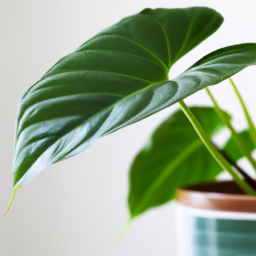
Are Indoor Plants Bad for You?
As an expert in indoor plants and their impact on health, I can confidently say that indoor plants can actually have numerous benefits for your well-being. However, there are certain factors to consider when choosing indoor plants to ensure they are safe for your health.
The Benefits of Indoor Plants
Indoor plants have been shown to improve air quality by removing toxins and pollutants from the air. They can also help reduce stress, boost mood, and increase productivity. In addition, indoor plants can add a touch of nature to your indoor space, creating a more relaxing and inviting atmosphere.
While indoor plants can have many benefits, it is important to choose the right plants to avoid any potential negative effects on your health. Some indoor plants can be toxic if ingested, while others may release pollen or spores that can trigger allergies or respiratory issues.
By following some simple tips for choosing indoor plants that are safe for your health, you can enjoy all the benefits of indoor greenery without any risks.
Choosing Safe Indoor Plants
When selecting indoor plants, it is important to consider the toxicity of the plant. Some common indoor plants that are safe for homes include spider plants, peace lilies, and Boston ferns. These plants are non-toxic and can help improve air quality.
It is also important to consider any allergies you or your family members may have. If you are sensitive to pollen or have respiratory issues, you may want to avoid plants that release pollen or spores, such as flowering plants or ferns.
Another factor to consider is the care requirements of the plant. Some indoor plants require more maintenance and attention than others. If you are new to indoor gardening or have a busy schedule, you may want to choose low-maintenance plants that are easy to care for.
Overall, indoor plants can have numerous benefits for your health and well-being. By choosing safe indoor plants that are non-toxic, allergy-friendly, and easy to care for, you can enjoy all the advantages of indoor greenery without any negative effects on your health.
Here are the Essential Points
Many people love having indoor plants in their homes for their aesthetic appeal and air-purifying benefits. However, there has been some debate about whether indoor plants can actually be harmful to your health. Some studies suggest that certain indoor plants can release allergens or mold spores into the air, which could exacerbate respiratory issues for some individuals. Additionally, some plants can emit volatile organic compounds (VOCs) that may cause headaches or other symptoms in sensitive individuals.
On the other hand, many experts argue that the benefits of having indoor plants far outweigh any potential risks. Plants can help improve indoor air quality by removing toxins and increasing oxygen levels. They can also have a calming effect on our mental health and overall well-being. Ultimately, the key is to choose the right plants for your space and to properly care for them to minimize any potential negative effects. So, if you enjoy having indoor plants in your home, there’s no need to worry – just be mindful of the types of plants you choose and keep them well-maintained.
FAQ Compilation:
Q1. Can indoor plants be bad for your health?
A1. Indoor plants are generally not bad for your health. In fact, they can have several benefits such as improving air quality, reducing stress, and boosting mood.
Q2. Do indoor plants release harmful chemicals?
A2. Indoor plants do release small amounts of chemicals like volatile organic compounds (VOCs), but the levels are typically very low and not harmful to humans. In fact, NASA research has shown that indoor plants can actually help remove toxins from the air.
Q3. Can indoor plants cause allergies or respiratory issues?
A3. While some people may be allergic to certain types of indoor plants, the likelihood of indoor plants causing serious allergies or respiratory issues is low. If you have allergies, it’s best to choose plants that are less likely to trigger symptoms.
Q4. Do indoor plants attract pests or insects?
A4. Indoor plants can attract pests or insects, but with proper care and maintenance, this can be minimized. Regularly inspecting your plants for signs of pests and using natural remedies like neem oil can help keep your plants pest-free.
Q5. Are there any specific indoor plants that are harmful to have indoors?
A5. While most indoor plants are safe to have indoors, there are a few that can be toxic to pets if ingested. It’s important to research any plant before bringing it into your home, especially if you have pets or young children.
Dr. Olivia Green is a botanist with over two decades of experience in indoor plant cultivation. She holds a Ph.D. in Plant Biology and has dedicated her career to researching plant behavior in controlled environments. Dr. Green is passionate about helping plant enthusiasts master the art of indoor gardening through her extensive knowledge and practical insights.

